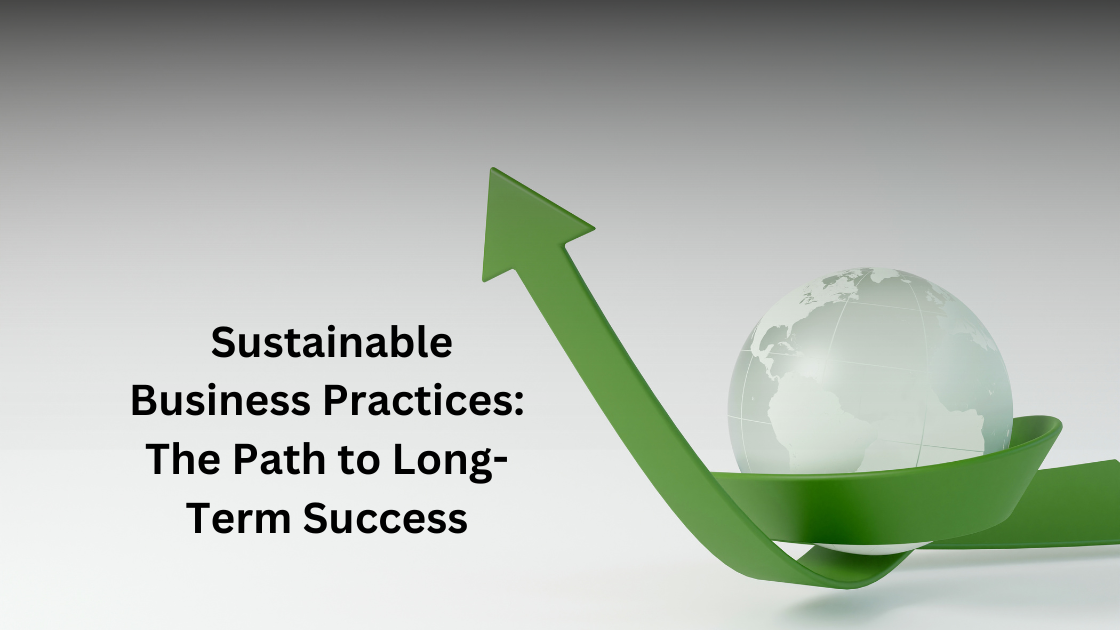Sustainable business practices are no longer just a moral imperative—they are a strategic necessity for long-term success. As businesses face growing environmental challenges, consumer awareness, and regulatory pressures, adopting sustainable practices can drive innovation, enhance brand reputation, and create a competitive edge. Here’s how embracing sustainability can lead your business to enduring success.
Aligning with Consumer Expectations
Today’s consumers are more environmentally conscious and prefer brands that align with their values. Businesses that adopt sustainable practices demonstrate a commitment to social and environmental responsibility, which resonates with this growing segment. Sustainable practices can enhance customer loyalty, attract new customers, and differentiate your brand in a crowded market.
Cost Savings and Efficiency
Sustainability often leads to cost savings by optimizing resource use and reducing waste. Implementing energy-efficient technologies, minimizing water usage, and adopting waste reduction strategies can significantly lower operational costs. These efficiencies not only contribute to the bottom line but also enhance resilience against fluctuating resource prices.
Innovation and Competitive Advantage
Sustainability drives innovation by challenging businesses to find creative solutions to environmental and social issues. Developing sustainable products, services, and processes can open new markets and create unique value propositions. Companies that lead in sustainability are often seen as industry pioneers, giving them a competitive advantage.
Compliance and Risk Management
With increasing regulations on environmental impact, businesses that adopt sustainable practices are better positioned to comply with current and future laws. Proactively addressing sustainability reduces the risk of legal penalties, enhances regulatory compliance, and protects the business from potential reputational damage.
Employee Engagement and Retention
Employees are increasingly seeking purpose-driven work and want to be part of organizations that contribute positively to society. Sustainable practices can boost employee morale, engagement, and retention by fostering a sense of pride and purpose. A commitment to sustainability also helps attract top talent who prioritize working for responsible companies.
Supply Chain Resilience
Sustainable supply chain practices, such as sourcing from ethical suppliers and reducing transportation emissions, enhance supply chain resilience. Businesses that prioritize sustainability in their supply chains can mitigate risks related to resource scarcity, climate change, and geopolitical instability. A sustainable supply chain also aligns with consumer expectations for transparency and ethical sourcing.
Long-Term Value Creation
Sustainability is about creating long-term value for all stakeholders, including investors, customers, employees, and the community. Companies that integrate sustainability into their core strategy are more likely to enjoy long-term profitability and market leadership. Sustainable practices contribute to building a strong, resilient business that can adapt to changing market conditions and societal expectations.
Enhanced Brand Reputation
A commitment to sustainability enhances brand reputation and builds trust with stakeholders. Businesses that demonstrate environmental stewardship and social responsibility are more likely to earn positive media coverage, customer loyalty, and investor confidence. A strong reputation can translate into increased customer preference, market share, and overall business success.
Community Impact and Partnerships
Sustainable businesses can have a positive impact on their communities by creating jobs, supporting local economies, and addressing social challenges. Partnering with community organizations, non-profits, and other businesses to promote sustainability can amplify your impact and foster goodwill. These partnerships also provide opportunities for collaborative innovation and shared learning.
Future-Proofing the Business
Sustainability is essential for future-proofing your business against environmental, social, and economic challenges. By investing in sustainable practices today, businesses can adapt to evolving market demands, mitigate risks, and seize opportunities in the transition to a more sustainable economy. Sustainability ensures that your business remains relevant and resilient in a rapidly changing world.
Adopting sustainable business practices is not just about meeting current expectations—it’s about positioning your business for long-term success. By embedding sustainability into your business strategy, you can drive growth, enhance stakeholder value, and contribute to a healthier planet. In doing so, you’ll not only build a more sustainable business but also a more prosperous and enduring future.

Leave a Reply